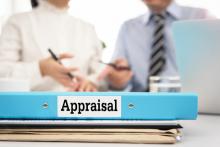
Overall Purpose
The relationship between an appraiser trainee and their supervisory appraiser requires the supervisor to oversee the trainee’s work, so trainees may grow their knowledge, experience and understanding of the appraisal process. The purpose of this relationship is to establish a learning environment for the trainee. The ultimate goal is to prepare that trainee to become licensed or certified and able to do independent work. But, it is important to understand that the trainee’s education takes place while performing actual appraisal assignments, which may have a serious impact on people’s financial lives. This makes the trainee/supervisor relationship doubly important. First, the relationship must facilitate the learning process, but second and even more important, it must provide clients with credible appraisals.
The supervisor must commit to be available to the trainee for live training, assistance with questions and careful review of the trainee’s work. As the trainee grows in competency, the supervisor will be able to give the trainee more independence and the latitude to exercise judgment. By the end of the training period, the trainee should be in a position to independently complete an assignment with the supervisor finding no meaningful issues after reviewing their work.
Supervision Needs to be Adequate
The Enforcement staff has been seeing issues arise concerning trainee supervision obligations. Since the purpose of supervision is to foster a learning relationship, adequate supervision is crucial to the trainee’s success. Many times we see supervisors who do not provide adequate attention to the capabilities of the trainee versus the requirements of the assignment. The attention required of the trainee’s work includes the adequate review of the data collection, analysis and assignment results. The supervisory appraiser signs the appraisal. Under state law the supervisor is responsible to the Board, as well as the client, to produce an appraisal which is credible and complies with USPAP. Supervisors should make sure to schedule sufficient time to meet regularly with the trainee, review their work and address the trainee’s questions. The supervision process should not be something that occurs during that 5 minute period just before the supervisor signs and delivers the appraisal report to the client. Much more is needed for the process to be meaningful and adequate and to comply with Board Rule 153.21(e) (addressing supervisor’s obligations).
Suggestions for Quality Supervision of Trainees
- Have an office procedure and documented, written processes in place detailing the obligations and responsibilities of both the supervisor and the trainee. These processes should include how the supervisor will oversee the trainee’s work, facilitate regular and meaningful communication and detail the trainee’s restrictions throughout their relationship.
- Develop a process for identifying, assigning, overseeing and reviewing more difficult assignments, so the trainee has adequate supervision commensurate with their level of competency.
- Always consider client requirements and assignment conditions when assigning a trainee, as there may be restrictions or prohibitions regarding trainee involvement in the inspection, data collection, analysis or other aspects of the scope of work.
Things to Watch Out For
Here are some tips based on some of the more serious issues we see in complaints:
- Pay close attention to client assignment conditions. USPAP obligates the supervisor to clearly communicate to the client the involvement of anyone providing significant appraisal assistance. If a client restricts the participation of trainees, do not omit or otherwise misrepresent the trainees’ participation in the appraisal. Making false statements about trainee involvement to a client, an AMC, or the Board may have serious civil, and possibly criminal, consequences.
- If the supervisor is required to inspect the property completely, make sure that happens. Making false statements about who actually inspected the exterior or interior of a property is serious and may result in civil and/or criminal liability. The potential inconvenience and extra time is not worth the risk of serious consequences.
- Make sure to meaningfully review the work completed by a trainee. Allow sufficient time for your review and for the trainee to ask questions or seek clarifications. Don’t assume that because your trainees have become more experienced you no longer need to review their work. Remember as long as the trainee is under your supervision the supervisor is responsible for the work product as if the supervisor has prepared it. After all, it is the supervisor’s name that appears on the appraisal when it is sent to the client.
- Consider the complexity of assignments and the review of complex assignments carefully. Such assignments may be too difficult for a trainee to handle or the review may require extra attention on the supervisor’s part.
Taking on the responsibility of training someone to become an appraiser is both taxing while at the same time very rewarding. Be sure to provide your trainees with the assistance they deserve. Doing so will help provide a productive learning environment for the trainee and also help protect the supervisor from potential liability.

